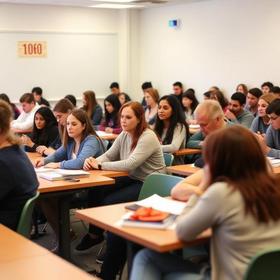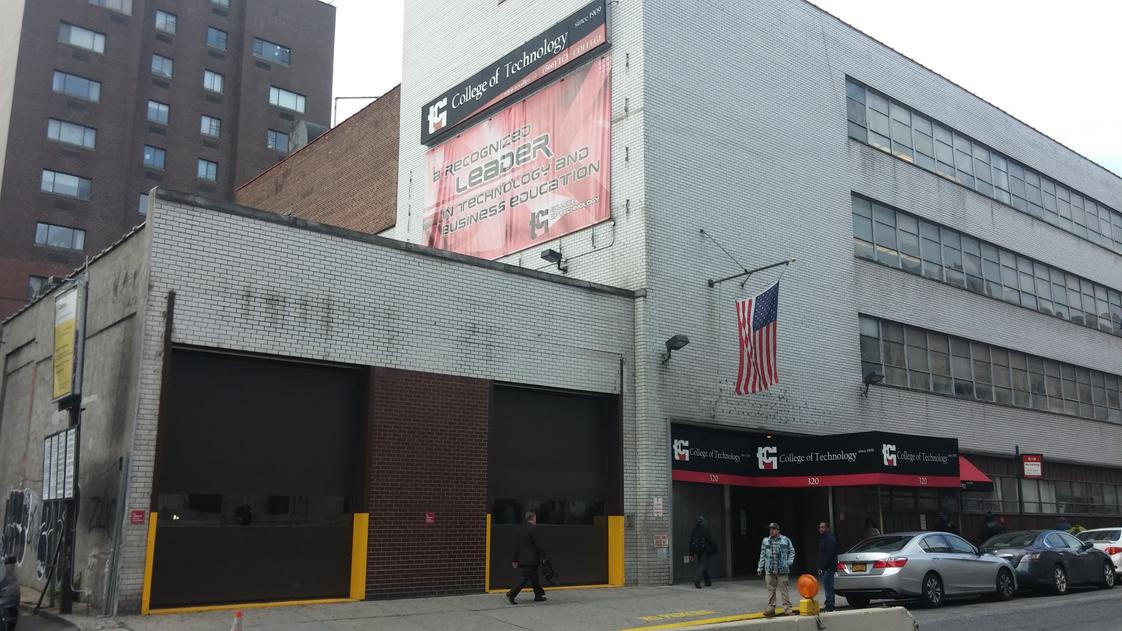- Technical Career Institutes, also known as TCI College, was a private, for-profit college in New York City that offered two year associate degrees and certificates for education in technology, business, engineering, healthcare and other career paths.
School Highlights
Technical Career Institutes served 2,762 students (86% of students were full-time).
The college's student-teacher ratio of 25:1 was higher than the state community college average of 13:1.
Minority enrollment was 95% of the student body (majority Black), which was more than the state average of 62%.
School Overview
Technical Career Institutes
(NY) Community College Avg.
Carnegie Classification
Associates Colleges
Baccalaureate/Associate's Colleges: Mixed Baccalaureate/Associate's
Institution Level
Less than 2 yrs
At least 2 but less than 4 years
Institution Control
Private, for profit
Private not-for-profit
Year Founded
1909
Total Faculty
110 staff
159 staff
Student Body
Total Enrollment
2,762 students
1,129 students
Student-Teacher Ratio
25:1
13:1
# Full-Time Students
2,385 students
528 students
# Part-Time Students
377 students
601 students
# Enrollment Undergraduate
377 students
357 students
# Full-Time Undergraduate Students
2,385 students
519 students
# Full-Time Graduate Students
n/a
44 students
# Part-Time Undergraduate Students
n/a
850 students
# Part-Time Graduate Students
n/a
41 students
Total Dormitory Capacity
n/a
382 students
% Asian
5%
8%
% Hispanic
33%
23%
% Black
43%
18%
% White
5%
38%
% Hawaiian
n/a
2%
% Two or more races
n/a
3%
% Non Resident races
1%
3%
% Unknown races
13%
5%
Diversity Score
0.68
0.76
College Completion Rate (Students who graduate in less than 4 years)
22%
27%
College Completion Rate (Students who graduate in 4 years or more than 4 years)
n/a
40%
Average Graduate Earnings (10 Years)
$36,800
$35,200
Tuition and Acceptance Rate
Private State Tuition Fees
$13,540
$16,503
Tuition Notes
No cost to apply at
% Students Receiving Some Financial Aid
97%
92%
Median Debt for Graduates
$18,937
$12,674
Median Debt for Dropouts
$5,500
$5,523
Acceptance Rate
n/a
74%
SAT Reading
n/a
475
SAT Math
n/a
505
SAT Writing
n/a
485
ACT Composite
n/a
20
ACT English
n/a
18
ACT Math
n/a
20
Source: 2016 (or latest year available) Integrated Postsecondary Education Data System (IPEDS) , School Administrators
School Notes
- TCI is a degree-granting college committed to educating men and women interested in careers and further academic opportunities in Electronics and Computer Technologies, Accounting, office and new Media technologies and Climate Control and Building Maintenance technologies. Since its founding in 1909, TCI has achieved a reputation for excellence in technological education. Under the leadership of Nobel Prize recipient and founder Guglielmo Marconi, the Marconi Institute becomes a leading center for education and development in the communications industry. In 1919 its name changes to RCA Institutes. In 1974 the College's name is changed to Technical Career Institutes. Today TCI College serves more than 3,000 students through programs that focus on emerging technological fields. We collaborate closely with major New York City employers to develop programs that prepare students for the needs of today's business environment. TCI is accredited by the Middle States Commission on Higher Education, an institutional accrediting agency recognized by the U.S. Secretary of Education and the Council for Higher Education Accreditation. TCI is accredited by the New York State Board of Regents and Commissioner of Education as well as Middle States Commission on Higher Education** which accredits NYS Colleges & Universities. For more information about our graduation rates, the median debt of students who completed the program, and other important information, please visit our website at, http://www.edufficient.com/tci-disclosure/
Frequently Asked Questions
How much does Technical Career Institutes cost?
Technical Career Institutes's private state tuition is approximately $13,540.
Recent Articles

Part-Time vs. Full-Time Enrollment in 2025: Which Is Better?
Explore part-time vs. full-time enrollment in 2025, comparing costs, flexibility, outcomes, and goals to help students choose the right path.

How Community Colleges Use AI Tools to Support Student Success
Explore how community colleges are using AI tools in 2025 to improve advising, learning, retention, and student success.

Nontraditional Student’s Guide to Community College 2025
Comprehensive guide for nontraditional students at community college with updated tuition, support, careers, and success strategies for 2025.






